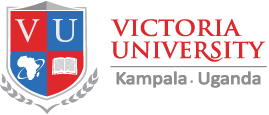Quick Facts
Credential
Postgraduate Diploma
Delivery Options:
Only Physical - All your Classes will be in-person, on campus.
Duration: One Year
With a typical full-time course load, this programme will take One Year to complete.
Language of instruction
english
Admission Requirements
Applicants must have a Bachelor's background that has secondary school teaching subjects as required by the Ministry of Education and Sports. These shall include:
(i) Bachelors of Arts degree with the following subjects: Economics, Geography, History, Religious Studies, Political Science, Music, Performing Arts, English Language, Literature, Foreign languages, including Chinese, Kiswahili, Local Languages and Sign language.
(ii) Bachelor of Science Degree with the following subjects: Mathematics, Physics, Chemistry, Biology, Physical Education, General Science, and Information Communication and Technology (ICT).
(iii) Bachelor of Vocational Studies with the following subjects: Agriculture, Art and Design, Nutrition and Food Technology/Science/Dietetics, Technology and Design (wood work, metal work, technical drawing and design), and Entrepreneurship.
Every Programme document for the Postgraduate Diploma in Education shall clearly indicate the teaching subjects expected of potential applicants. The programme document should explicitly state that any candidate admitted without fulfilling the teaching subject requirements shall not qualify for school practice and shall therefore not be considered for registration as a teacher.
None
What you will Learn
Learning Outcomes for Post Graduate Diploma in Education
PGDEis designed to ensure that students achieve specific knowledge, skills, and understandings by the end of the course. These outcomes aim to provide a solid theoretical and practical foundation in the field of education. Learning outcomes for Foundations of Education are to enable learners to:
Demonstrate an understanding of major educational philosophies, such as essentialism, progressivism, and constructivism, and their implications for teaching and learning.
Identify key historical events and figures that have shaped the development of education systems and policies over time.
Recognize the influence of cultural, social, and economic factors on education and appreciate the diversity of learners and communities in educational settings.
Apply psychological principles of learning and development to understand how students acquire knowledge and skills.
Analyze curriculum design and instructional strategies that align with educational objectives and cater to the needs of diverse learners.
Recognize ethical considerations in education and demonstrate professionalism in teaching and interactions with students, colleagues, and the community.
Apply research methodologies to critically analyze educational literature and make evidence-based decisions.
Foster a culturally competent and inclusive learning environment that respects and supports the diverse backgrounds of students.
Engage in reflective practice, evaluating personal teaching philosophies and continuously seeking professional growth and improvement.
Demonstrate an understanding of educational leadership principles and their relevance in various educational contexts.
Engage in discussions on education policy and advocate for positive changes in the education system.
Career Opportunities
Pursuing a Post Graduate Diploma in Education (PGDE) can open up a wide range of career opportunities, primarily in education but also in other sectors where teaching, training, and the development of educational materials are relevant. The PGDE is designed to provide graduates with the skills and knowledge necessary to teach in their chosen subject area, but the skills gained can also be applied in various other roles. Here are some common career paths for PGDE graduates:
Teaching and Education
Primary and Secondary School Teaching: Most directly, a PGDE qualifies you to teach in primary or secondary schools in the subject area of your specialization.
Special Educational Needs (SEN) Teaching: With further specialization, you can work with children and adults who require special education services.
Educational Consultancy: Advising educational institutions on curriculum development, educational policies, and teaching methodologies.
Educational Administration and Leadership: Roles in school administration, such as headteacher, principal, or in educational departments within the government.
Higher Education Lecturing: Depending on the subject and the level of your diploma, you might qualify to teach at the tertiary level or work in student support services.
Tutoring and Private Education: Providing one-on-one or small group lessons, either as part of an organization or independently.
Corporate and Training Roles
Corporate Training and Development: Designing and delivering training programs for employees in a corporate setting.
Human Resources: Working in HR departments to develop training and professional development programs for staff.
Educational Technology and E-learning Development: Creating educational software, apps, and online courses.
Non-profit and International Organizations
Educational Program Coordinator: Working for non-profit organizations that focus on educational initiatives and community programs.
International Education: Roles in international organizations, focusing on educational policy, program implementation, or teaching abroad.
Research and Writing
Educational Researcher: Conducting research on educational methodologies, policies, and outcomes for research institutions or think tanks.
Curriculum Developer: Designing curricula for educational institutions or companies.
Educational Writer or Editor: Writing or editing textbooks, educational materials, or articles on education.
Entrepreneurship
Educational Entrepreneurship: Starting your own venture in the education sector, such as an educational app, tutoring service, or private school.
Tuition & Fees
The tuition and fee amounts are estimates based on current academic year's rates. For financial planning purposes, please use these totals as an approximate estimate of your costs. Actual fees may vary by term and enrolment activities.
Download
